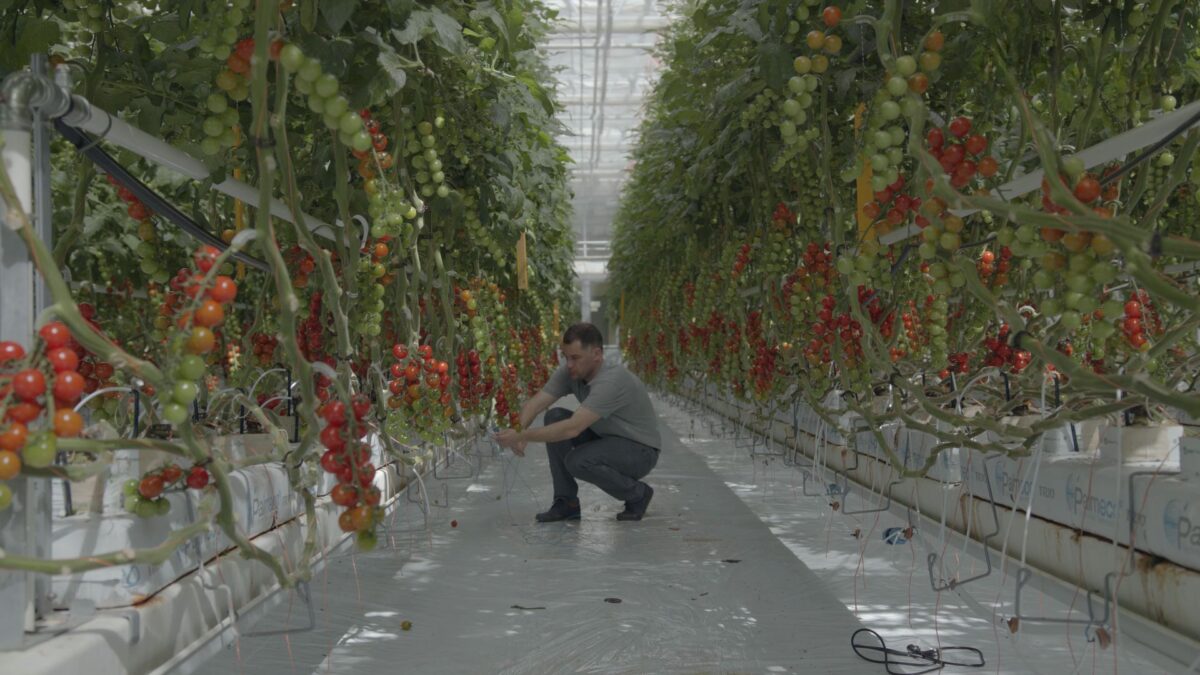

Sensors can identify dozens of stress signals from vegetable plants. What if vegetables could talk to signal that they were cold, thirsty, under attack by a pest or lacking a nutrient? Two entrepreneurs asked themselves this question a few years ago while working on a project for a connected watch that would pick up signals from the human body. Carrol Plummer and Nigel Wallbridge were convinced that this was the case and redirected their research in this direction. Their technology can now identify a few dozen signals indicating sources of stress that can slow plant growth and reduce crop yields. Their start-up company, Vivent, markets the technology to around 100 customers in Europe, North America and Asia. Capturing and interpreting plant signals is no easy task. These are emitted in electrical form, and we live in an environment saturated with such signals, whether natural or artificial. ” The first breakthrough was to demonstrate that it was possible to pick up plant signals outside a Faraday cage (an enclosure used to block electromagnetic fields) and distinguish them from the ambient noise,” says Marina Martin Curran, sustainability manager of the Gland-based start-up.
ARTIFICIAL INTELLIGENCE
The second breakthrough was to use artificial intelligence to interpret them. This required numerous tests, carried out in collaboration with Agroscope (a federal research structure) and the University of Applied Sciences of the Canton of Vaud, with funding from the Innosuisse programme. They have shown that all the plants examined “speak” almost the same “language”: if an algorithm has learned to recognize the thirst or cold signal emitted by a tomato plant, it will also be able to recognize it in a pepper plant or a lettuce. Vivent has identified several dozen signals corresponding to a lack of nitrogen, phosphorus, an attack by a bacterium, a fungus, etc.
ANTICIPATION
The advantage of being able to interpret plant signals? “There is a whole industry of sensors that measure different parameters, but our technology is the only one that is predictive,” says Marina Martin Curran. “It allows us to identify potential problems ten days or two weeks before growers spot them, and thus to act much faster.” This allows for increased yields without the need for more inputs, which is good for sustainability. Beyond the occasional problems (lack of a nutrient, attack of a pest, etc.) the idea is to identify the hours during which the plants grow slowly, to identify the cause and to limit them as much as possible. “The elimination of 1% of the worst hours in the crop cycle can increase yield by 10% or more,” says the start-up, which is B-Corp certified.
GREENHOUSE CULTIVATION
The technology has already been on the market for a little over two years and is still in full development. Most of Vivent’s customers are currently greenhouse operators. This is an ideal environment in which to develop the technology: the conditions are much more stable and homogeneous than in the open air, whereas two sensors may be sufficient in a large greenhouse, many more are usually needed in a field of the same size. When a sensor identifies a stress signal, the grower receives a warning signal – an automated plant stress alert, without specifying the cause. “It could be a simple problem, like a window not being properly closed and the greenhouse getting cold,” says Martin Curran. “They can correct it themselves.” To get a more accurate diagnosis, Vivent needs to analyze the signals. The start-up is working to automate this task and develop a more user-friendly interface. In the long term, it could be possible to dispense with human intervention: a plant would signal that it lacks phosphorus, for example, and a system would automatically supply it.
IN THE VINEYARDS
A few customers in France and Portugal are also using the technology in vineyards. Deployment in the open air is still hampered by the fact that the sensors must be permanently connected to a power source in order to collect the signals two hundred and fifty-six times per second. Vivent is therefore working on developing a new generation of autonomous, wireless sensors. Finally, “we have several customers among the manufacturers of phytosanitary products,” says Marina Martin Curran. “They are developing new, more environmentally responsible biological products and want to know how the plants react when they are applied.” The current developments require funding, and Vivent is currently in the process of raising up to ten million francs in a round of financing.
By Pierre Cormon
l’Entreprise Romande
04/11/2022




